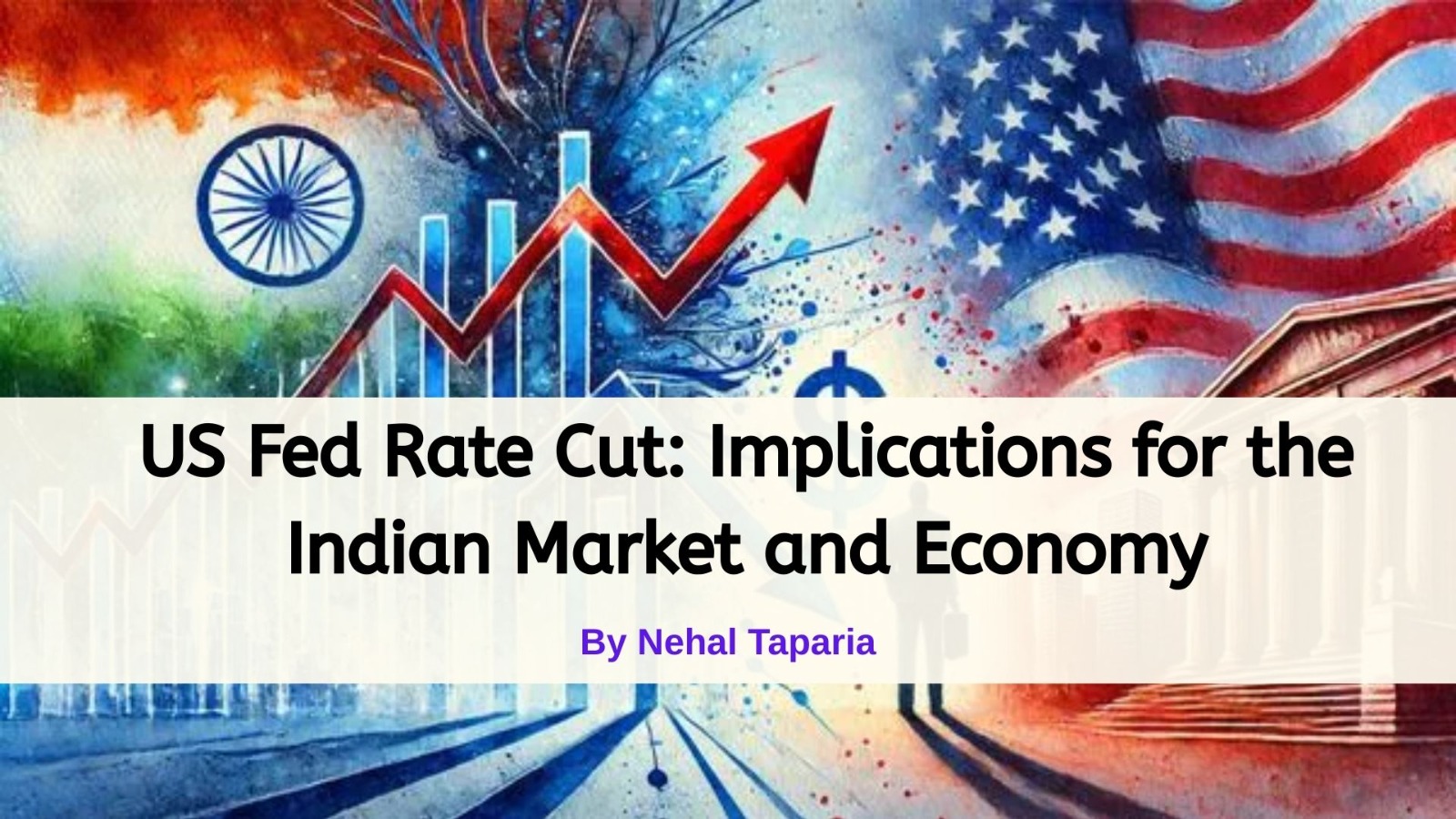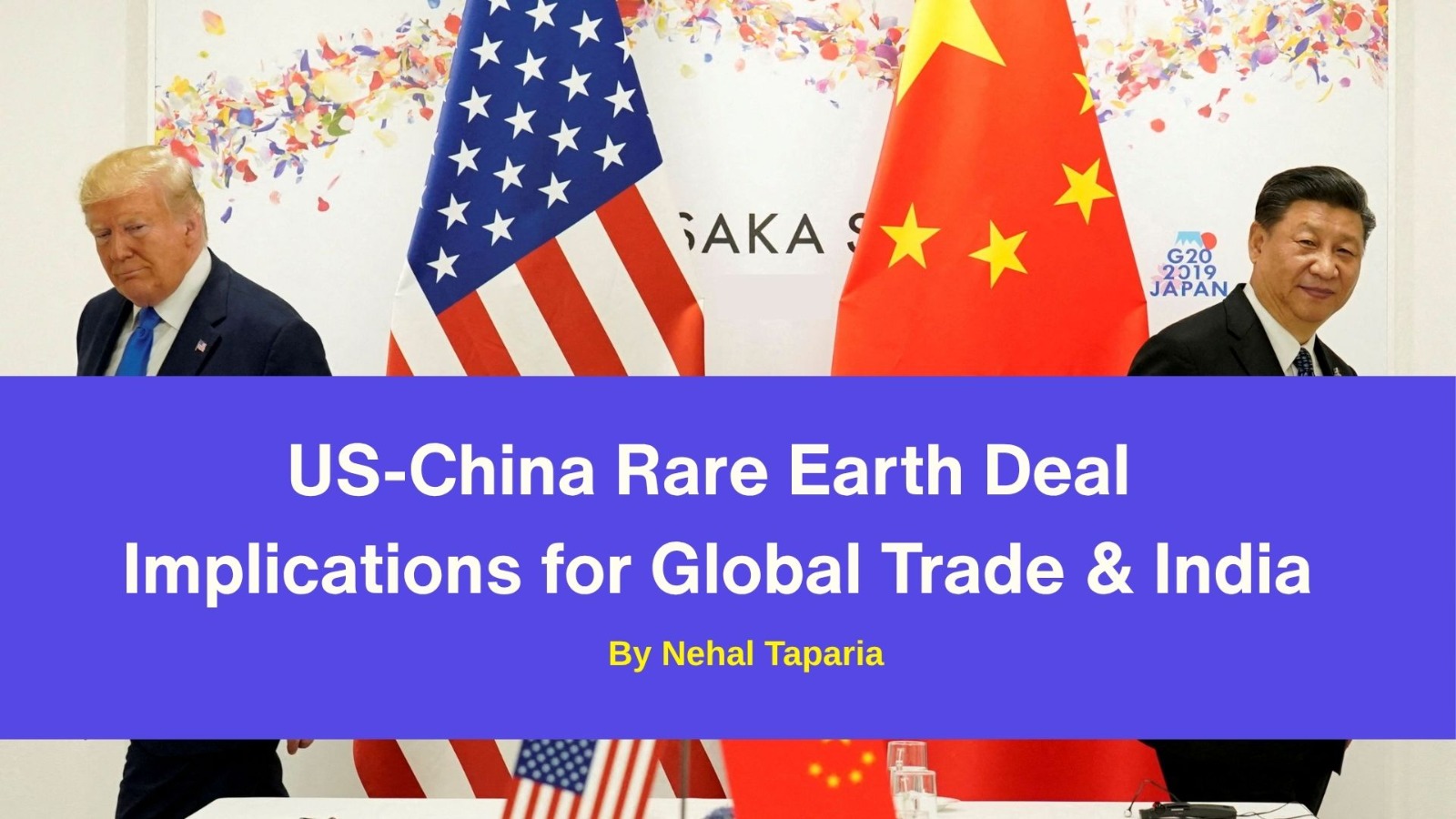US Fed Rate Cut: Implications for the Indian Market and Economy

US Fed Rate Cut: Implications for the Indian Market and Economy
Introduction:
On September 16, 2025, the U.S. Federal Reserve initiated its first interest rate cut of the year, reducing rates by 25 basis points. This move has significant implications for global financial markets, including India. Understanding how such decisions impact the Indian market is crucial for investors and policymakers alike.
How the US Fed Rate Cut Affects the Indian Market
1. Strengthening of the Indian Rupee:
The anticipation of a U.S. rate cut led to a weakening of the U.S. dollar. Consequently, the Indian rupee appreciated to a one-week high of ₹88.05 per U.S. dollar on September 16, 2025. A stronger rupee can make imports cheaper, potentially reducing inflationary pressures in India.
2. Increased Foreign Investment:
Lower U.S. interest rates make American assets less attractive, prompting investors to seek higher returns in emerging markets like India. This shift can lead to increased foreign capital inflows, boosting Indian equities and potentially driving up stock prices.
3. Impact on Indian Exports:
While a stronger rupee benefits importers by reducing costs, it can make Indian exports more expensive for foreign buyers. This could affect sectors like IT and pharmaceuticals, which are sensitive to currency fluctuations.
4. Potential RBI Policy Adjustments:
The Reserve Bank of India (RBI) may respond to the Fed's rate cut by adjusting its own interest rates. A lower RBI repo rate could stimulate domestic borrowing and investment, further supporting economic growth.
Conclusion:
The U.S. Federal Reserve's decision to cut interest rates has far-reaching implications for the Indian market. While there are potential benefits, such as a stronger rupee and increased foreign investment, there are also risks, particularly for export-oriented sectors. Indian investors should stay informed and consider adjusting their portfolios to navigate the evolving economic landscape.
By Nehal Taparia
This content is for educational and knowledge purposes only and should not be considered as investment or Trading advice. Please consult a certified financial advisor before making any investment or Trading decisions.
Our Recent FAQS
Frequently Asked Question &
Answers Here
Q1: What is the Federal Reserve's role in the global economy?
The U.S. Federal Reserve (Fed) is the central bank of the United States. Its monetary policy decisions, particularly regarding interest rates, influence global financial markets due to the U.S. dollar's status as the world's primary reserve currency.
Q2: How does a U.S. rate cut impact Indian investors?
Q3: Are there any risks associated with the Fed's rate cut for India?
Q4: Should Indian investors adjust their portfolios in response to the Fed's rate cut?
Copyright © By The Stock Learning. Design & Developed by Techno Duniya










